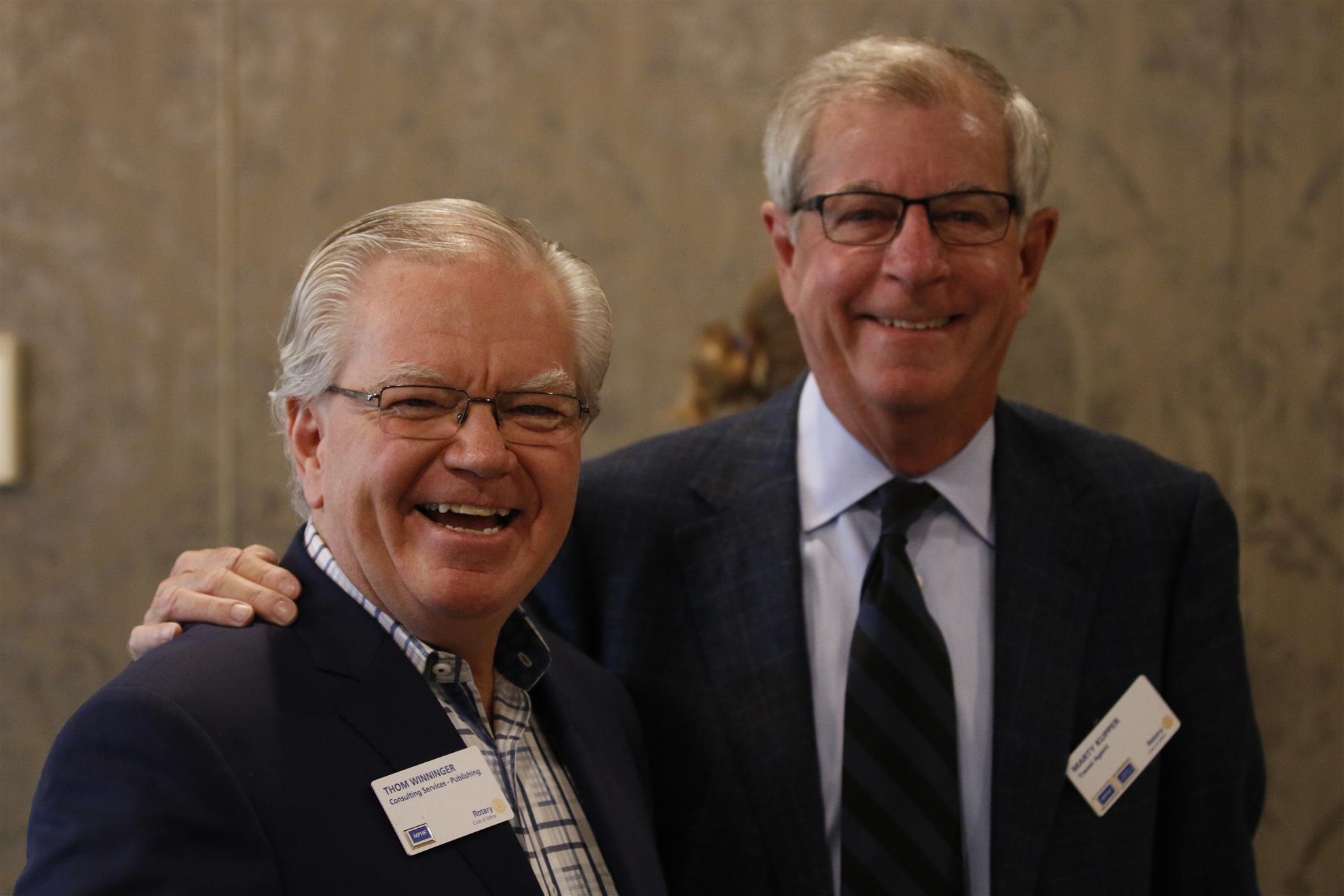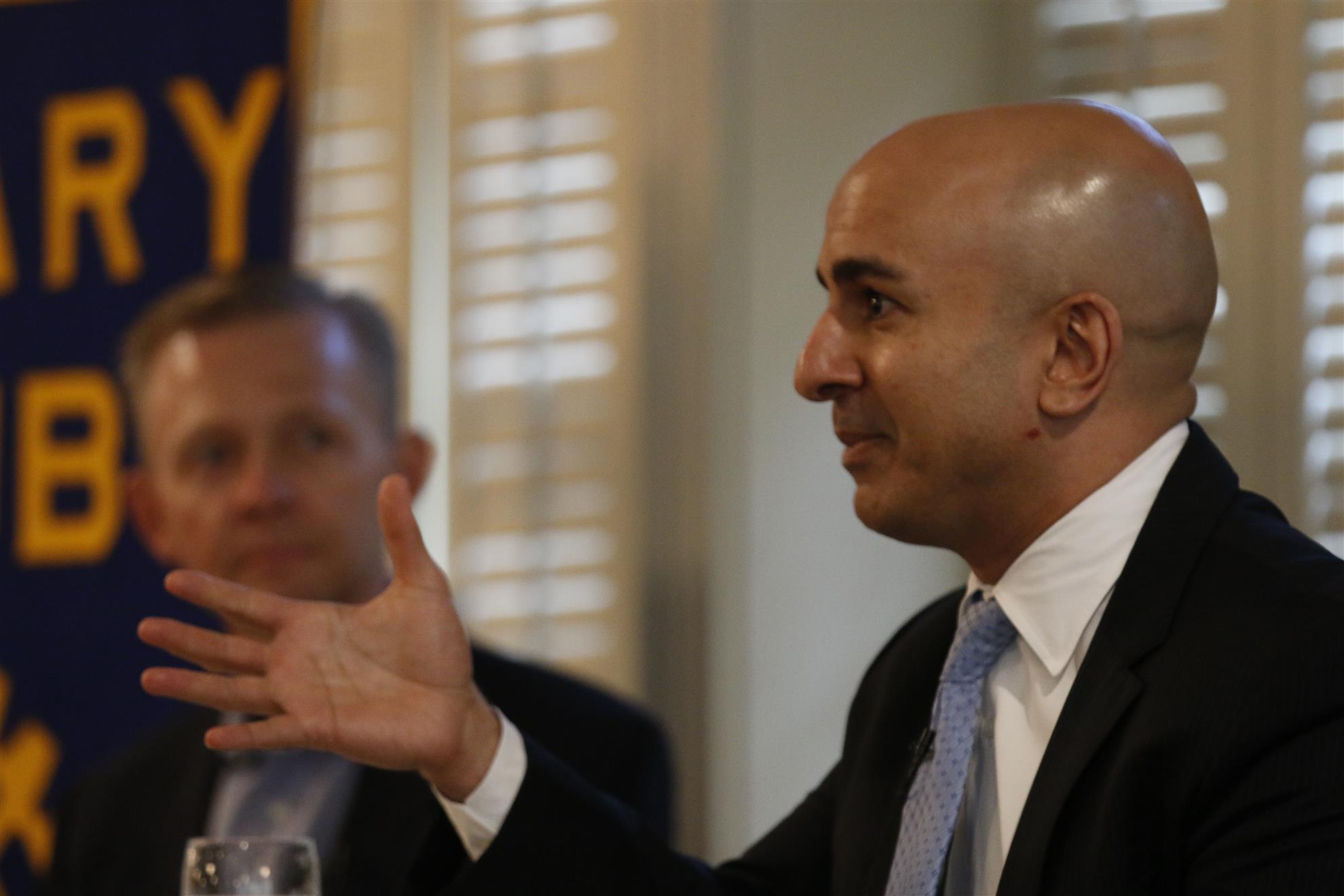
The Aug. 17 meeting was a very special meeting with Neel Kashkari, President of the Federal Reserve Bank in Minneapolis, as our speaker. Many guests from Area 3 Rotary clubs were in attendance, with more than 230 people present to hear Mr. Kashkari, including District Governor Elect Irene Kelly, District Governor Nominee Russ Michaletz, Edina Mayor Jim Hovland and State Rep. Laurie Pryor from District 48A.
Click on the link below to read more about the meeting...
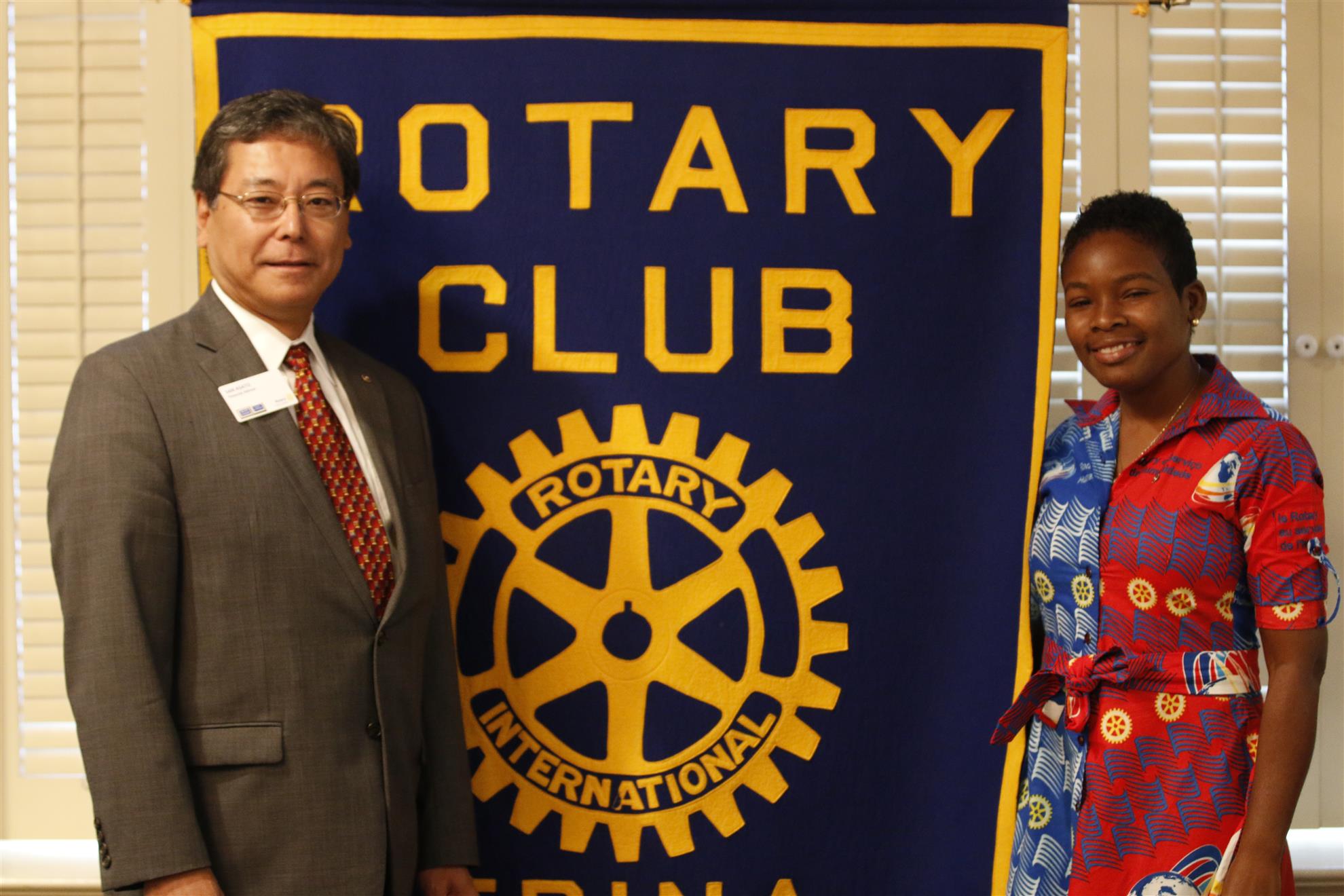
Our fearless leader, San Asato, promptly started the meeting at 12:31 p.m., thanking those assisting with the meeting. This was followed by an excellent invocation by Mark Jessen, who encouraged civility and respect in a time of growing discord in our society.
Past President Jeff Ohe then introduced Mr. Kashkari.
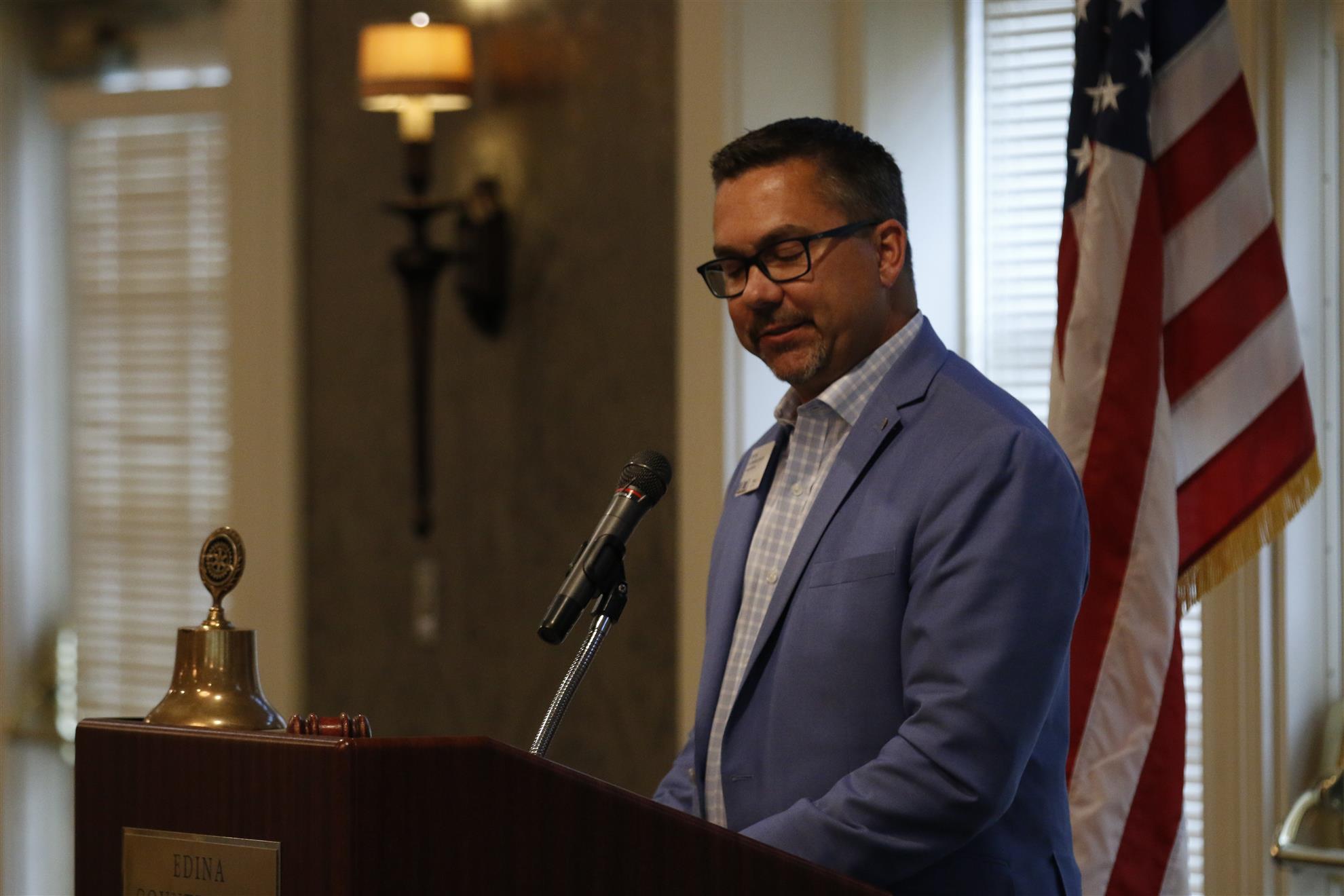
I could have made my job easy and simply refer you to the link to watch the talk but you will need to suffer through my summary. I do encourage you to watch it if you missed the meeting or to watch it again as it was an excellent program and excellent questions asked.
Mr. Kashkari has a more than impressive resume. He is an aerospace engineer, worked at Goldman Sachs, worked at the U.S. Treasury as an Assistant Secretary of the Treasury and was deeply involved with TARP during the financial crisis…and by the way, he has an MBA from Wharton. In his spare time he ran for governor of the state of California.
Mr. Kashkari has been the President of the Federal Reserve Bank of Minneapolis since January 1, 2016. There are 12 Federal Reserve Districts and Minneapolis is District 9. The Federal Reserve was created by the Congress to provide the nation with a safer, more flexible, and more stable monetary and financial system. Some of its key functions are: conducting the nation’s monetary policy to promote maximum employment, stable prices, and moderate long-term interest rates in the U.S. economy; promote the stability of the financial system and seek to minimize and contain systemic risks through active monitoring and engagement in the United States and abroad; and promote the safety and soundness of individual financial institutions and monitor their impact on the financial system as a whole.
Mr. Kashkari sits on the Federal Open Market Committee (FMOC) and brings to the FMOC meetings the perspective of local leaders in District 9. While the Federal Reserve is a central bank, the 12 districts distribute the power across the United States and allows local perspective from each district to be considered. He indicated that while there certainly are a range of views on the FMOC, politics stays out of the conversation. Their dual mandate is stable prices (inflation in check) and maximum employment. There are eight meetings per year and they look to focus on key signals while at the same time keeping the “noise” out, which includes political considerations. He stressed the importance of independence and the bipartisan reappointment of predecessor appointments by our presidents—this has helped the Fed behave in a non-political fashion.
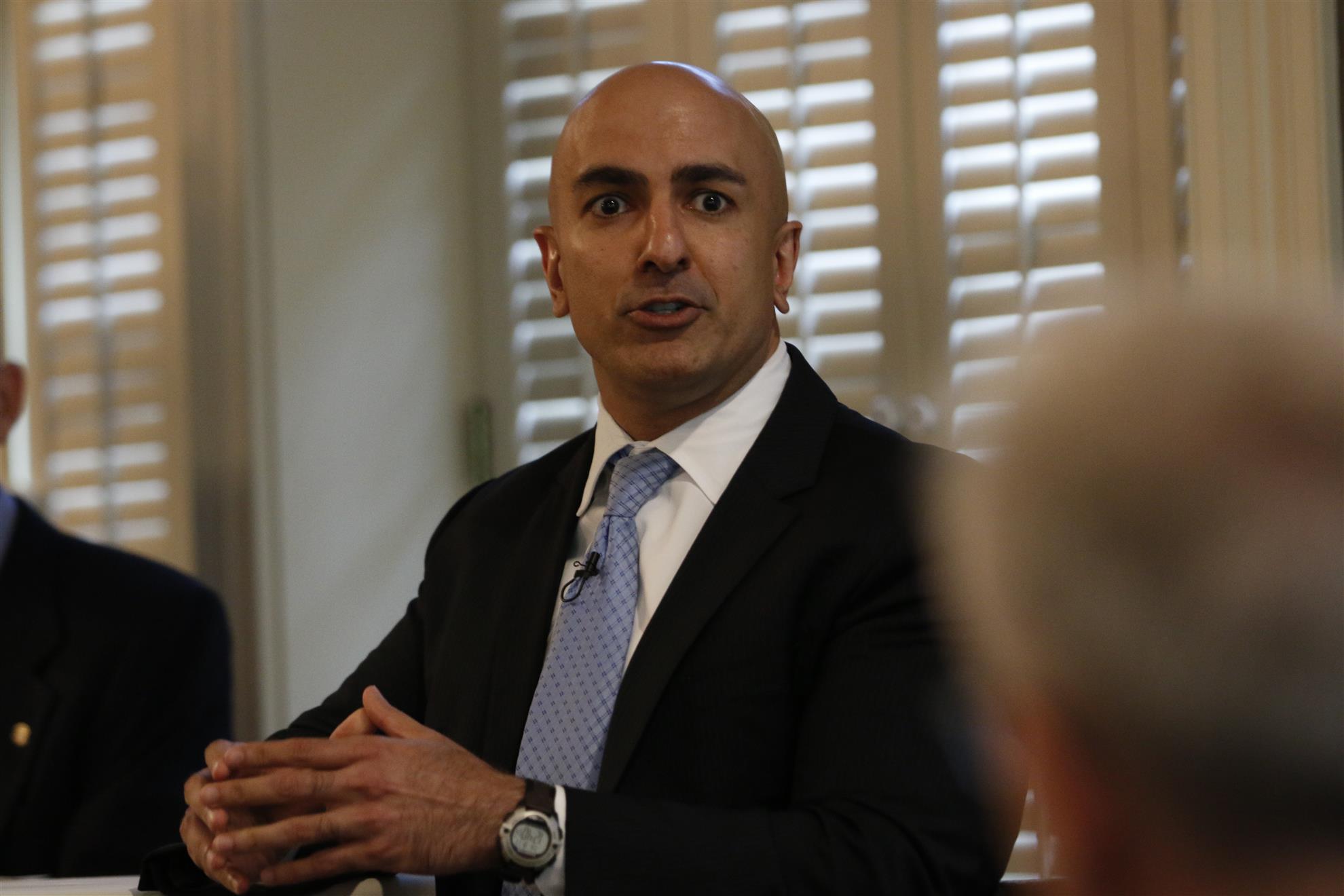 A question was asked about our $20 trillion debt growing at $1 Trillion per year with a $18 trillion GDP growing at 2 ½ percent per year—a seemingly unsustainable path. It was acknowledged that this is an issue that will need to be addressed. It is not simply a Fed issue but an issue for Congress. We are still the most trusted economy in the world and that helps stem the issue but should that change and investors start looking elsewhere, it will create significant issues. He made the comment that we are better at dealing with crisis than dealing with long-term issues.
A question was asked about our $20 trillion debt growing at $1 Trillion per year with a $18 trillion GDP growing at 2 ½ percent per year—a seemingly unsustainable path. It was acknowledged that this is an issue that will need to be addressed. It is not simply a Fed issue but an issue for Congress. We are still the most trusted economy in the world and that helps stem the issue but should that change and investors start looking elsewhere, it will create significant issues. He made the comment that we are better at dealing with crisis than dealing with long-term issues.There was a discussion on the importance of productivity and that it has been running at half the rate of prior decades. We need continued growth to fuel our continued spending. He emphasized the importance of education and technology in productivity growth.
He discussed the distinction of tax reform vs. tax cuts. The latter is a short-term boost but growth in deficits while the former is revenue neutral and gets rid of distortions and loopholes giving taxpayers a more efficient system. The hope is for real tax reform but as stated earlier, we are better at crisis management than dealing with long-term issues and true tax reform is a long-term issue that will be hard to tackle.
The metro area is a very diverse economy, which helps us ride through challenging times. We have a skilled workforce and a strong education system. Our challenges are racial disparity and urban/rural disparity. For example, the African American unemployment rate is twice that of white Americans regardless of education. There are few good answers to this and he indicated they are researching the root cause.
Mr. Kashkari was the sole dissenting vote at the March and June meeting on raising interest rates. He feels that over the long run interest rates will stay low. If we see productivity jump, rates will likely jump but productivity has not been increasing as it has in the past. If productivity stays the same, rates will stay the same or even decrease.
It was a fascinating discussion. It is good to know District 9 is in good hands. Again, I encourage you to check out the link and watch the talk in its entirety.
Like the Swiss watch that we are, the meeting ended promptly at 1:30 p.m.
